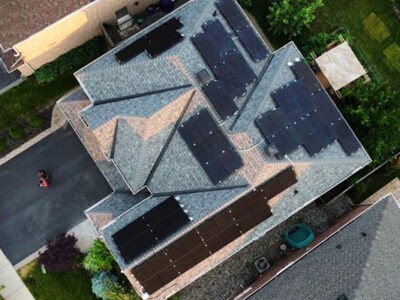The Canadian government announced victory over a solar safeguard dispute under the Canada-United States-Mexico Agreement (CUSMA).
In 2018, Trump introduced Section 201 tariffs on imported crystalline silicon photovoltaic (CSPV) modules to the U.S., including Canada.
This happened regardless of the U.S. International Trade Commission’s explicit ruling that imports from Canada did not meet the standard for inclusion under article 802.1 of the North American Free Trade Agreement (NAFTA).
The U.S. initially used a loophole in NAFTA to prolong the arising dispute but after the new trilateral pact took effect, Canada was able to kick-start a CUSMA dispute settlement process in late 2020 and then file a request for the creation of a panel on June 18, 2021.
The CUSMA panel took jurisdiction over the dispute after dismissing the U.S.’ claim that the matter should have been challenged under NAFTA, which is no longer in force.
It was determined that the U.S. had made a couple of violations of the free trade agreement by “failing to exclude imports from Canada from its solar safeguard measure” and by “impermissibly increasing tariffs on imports of solar products from Canada.”
The panel agreed with the stance that imports from Canada did not represent a “substantial share” of total imports into the US and that they could not have “contributed importantly” to any serious economic injury to US solar product makers.
Now, the U.S. has 45 days to seal a deal with Canada and resolve the dispute.
In early February 2022, President Biden issued a proclamation to extend the safeguard measure for an additional four years. At the time he instructed the U.S. Trade Representative to negotiate a suspension of the safeguard measure with Canada.
The CUSMA panel pointed out that only a full exclusion for imports from Canada would ensure that the U.S. has achieved compliance with its obligations under the trilateral pact.
“We welcome the United States’ intention to pursue a resolution with Canada and Mexico, as indicated by the President in his recent announcement. […] Canada will work toward the complete removal of these unjustified tariffs,” commented Mary Ng, Canada’s Minister of International Trade, Export Promotion, Small Business and Economic Development.
According to a statement by the minister, exports of solar products from Canada to the U.S. have plunged by as much as 82% since the imposition of the tariffs.
Canadian solar panel manufacturers Silfab Solar and Heliene stand to gain the most from this decision.
—
This article was written by the team at Renewables Now.
It’s published here via partnership.














Comments